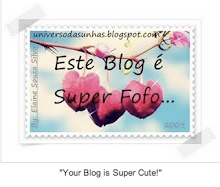This is the story Excy and I worked on that he told on 'Tales From the South' last night. It was very well received. We all had fun.
Happy Thanksgiving to all!
We had slipped into ‘Nigerian time,’ – which is a cross between regular time and the Twilight Zone. As we sat in a booth at the Cheesecake Factory in Kansas City, my friend Nola waved over the restaurant manager, a short, balding man in his fifties. I shifted uneasily in my seat as he made his way towards us through the crowded restaurant. We had met Nola and her husband Ade and their son Seun for dinner on our 800-mile road trip, and, knowing her as I had for the past ten years, I knew this was going to be good.
Nola had just ferreted out from our waiter, who had done an exceptional job of serving our party of five, that it was company policy he would have to share his substantial tip with the other waiters. And, when he was given a break to grab a bite, he was expected to eat in the employee’s lounge, but pay full price for the food just like any other customer.
As we ate our dessert, cheesecake, of course, Nola talked with the manager about how he could correct these injustices to their wait-staff.
Sitting in the restaurant parking lot was an empty 30-foot gooseneck stock trailer attached to a super-duty truck primed to go to Lawler, Iowa, to rectify another injustice of an entirely different nature.
Two years before, I adopted two mustangs through a program run by the Bureau of Land Management. A friend who works for the BLM Colorado office handpicked these two special wild horses for me. I drove to Canon City, Colorado, to pick them up at the BLM holding facility, which is interestingly enough located in the Colorado State Prison. The prisoner who helped load the horses was named Coronado, who was so kind it made me wonder why he was there in the first place, though you aren’t allowed to ask. Coronado, not lacking a sense of humor, suggested I just leave him in the trailer and he would come home to Arkansas as a hired hand. The armed guard standing beside me thought less of the idea
Those two mustangs came back to Arkansas to live on the land my wife and a partner and I had set up for a horse facility. Since wild horses have a different attitude, a different nature, than domestic horses, my friend Lona from Colorado said if I needed any pointers dealing with them I should contact a group in Nevada with the very unlikely (but highly descriptive) name of Least Resistance Training Concepts (LRTC). I did get lots of pointers from them, but also learned of two large horse herds in the Reno area that have no federal protection and are controlled by the State of Nevada. The State was removing horses from these lands on a regular basis and the LRTC folks helped try to find homes for those captured mustangs.
Ironically, those two herds, the Comstock and Virginia Range, were the horses best known to Annie Johnston (no relation), the woman most responsible for wild horses and burros on federal lands being protected. Known as ‘Wild Horse Annie Johnston,’ she was famous in the ‘60s and ‘70s for her diligence in protecting these animals, spearheading one of the largest letter-writing campaigns on record to get legislation passed to protect the mustang and their rangeland.
The call came less than two years after the first two mustangs came back to Arkansas. The folks at LRTC asked if I’d take in some wild horses from the Comstock that were in a particularly perilous situation. These horses had already been picked up by a ‘killer buyer,’ – a buyer who pays for a horse based on its weight and what he can sell it for to a slaughterhouse. At the time there were three slaughterhouses operating in the US. They have subsequently been shut down, largely due to public pressure, but as of just a few days ago, the US House passed legislation that would allow the return of slaughterhouses in this country. For now, though, the trade has simply moved on to Canada and Mexico. The horses are killed for human consumption, the meat mostly going to parts of Europe and Asia. This particular buyer had already taken the horses to his farm in Iowa, but agreed not to take them to slaughter right away as long as he was compensated for feeding them.
After hearing the hard-luck plea from the LRTC, I said yes to rescue as many as our pasture would support. It seemed natural to turn our place on Wye Mt. outside of Little Rock into a sanctuary for wild horses. We named it WING SPUR after my family crest, which is a flying spur. WING SPUR WILD HORSES also has a nice ring to it, as well as a sense of freedom. We were ready to take in some horses.
The one positive note in all this was that through capture records we could determine which families (also called bands), each horse was in. Although they had been separated by sex and age, we were able to reunite the ones we could take, and it was a real joy to watch them as they came together again.
My friend Jacque, who shares my love of all things horse, agreed to make the trip, along with Alicia, a gal who then worked for me caring for the mustangs we had and our recently adopted wild burro. (Taking my wife Amy to a BLM adoption to help a friend pick some horses ended up in our adopting a burro she befriended from across a corral panel).
And that’s how we ended up at the Cheesecake Factory in Kansas City as our friend Nola outlined the staff injustices to the manager.
The manager looked sheepish as we finally stood to leave. He obviously didn’t know what he had walked into. We finally said our goodbyes to the Adebos and piled back into our truck. The plan was to drive straight through to northern Iowa, and it was already 9 p.m.
We arrived at Lawler about 1 a.m. (You know you’re in a little German hamlet when the hardware, lumber, and feed store is called Teissens, you know, like the chicken folks, but spelled TEISSENS).
By mid-morning the next day we were at the farm to pick up the horses. When Jacque discovered this farmer was a killer buyer (no, I had not told her), she immediately got into the cab of the pickup and stayed there until we left. Normally friendly and outgoing, Jacque does not talk to killer buyers.
It didn’t take very long before the farmer, his wife, and Alicia and I loaded 13 wild horses – more accurately – two wild horse bands – and one extra male into the trailer. The trip back was a little slower and lasted through the night, as plenty of stops were necessary to give the horses a break, and us too.
Sometime around mid-morning the next day, the horses arrived at WING SPUR, their new home. Their families were intact, and they had free run of the place, with a large pond to splash in and mud to roll in to escape the flies and heat of the summer. However, it took months for them to feel secure and to calm down. Slowly, you could tell they looked less nervous as they settled into the idea that no one was going to mistreat them.
It’s been seven years since that trip to Lawler. The oirginal 13 are now 15 horses They are much calmer, though they still get ‘flighty’ at times. At roundup when they are vaccinated and wormed each year, they seem to think they are being mistreated. But no one is going to eat them.
Each morning I walk over to the pasture and lean on the fence, and thank God we were able to rectify that injustice. Safe and protected for the rest of their days, they are home.
Wednesday, November 23, 2011
Subscribe to:
Post Comments (Atom)






.jpg)






6 comments:
Wonderful story, Amy and the horses are so lucky to have the sanctuary.
Happy Thanksgiving!
I loved the story. The world needs people like you and Excy!
Happy Thanksgiving!
Many of the farms I had horses at have had mustangs. In Arizona there seems like there are a lot of PMU babies too.
I love this true story of redemption. Thanks, Wye. Hope youe you're feeling better these days.
What a wonderful story. There's a special place in heaven for folks like you. Bless you, my friend.
God bless you for rescuing those horses. I remember reading a book about Wild Horse Annie. I'm going to follow you, and I hope you'll follow me too.
Love,
Lola
Post a Comment